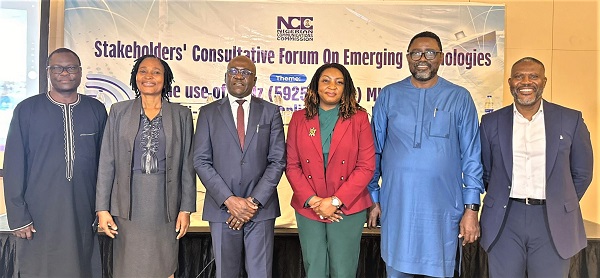
The Nigerian Communications Commission (NCC) has initiated plans to harness the 6GHz spectrum to improve internet speed in the country.
This was revealed by the executive vice-chairman of the NCC, Dr. Aminu Maida during the Stakeholders’ Consultative Forum on Emerging Technologies held in Lagos.
Maida, represented by the executive commissioner of technical services, Engr. Abraham Oshadami explained that the current 5GHz and 2.4GHz spectrum bands are experiencing capacity constraints, prompting the need for the deployment of the higher 6GHz spectrum. This move is aimed at addressing the rising demand for high-speed internet across Nigeria.
He further noted that Nigeria is set to join other countries already utilizing parts of the 6GHz band for Wi-Fi 6 applications. “The 6GHz band, covering frequencies from 5925 MHz to 7125 MHz, will substantially increase the available spectrum, which is essential to meet the growing need for fast internet and advanced applications,” he said. Maida emphasised the importance of Wi-Fi in distributing fixed broadband connectivity to homes and businesses, highlighting its role in supporting large volumes of data and providing lower latencies and higher data throughput.
The 6GHz band offers faster data rates and transmission speeds compared to previous spectrum bands. In December, Nigeria signed a global agreement for the adoption of 6G technology at the 2023 World Radiocommunications Conference (WRC) in Dubai, Minister of Communications, Innovations and Digital Economy, Dr. Bosun Tijani signed the agreement on behalf of Nigeria, aligning the country with global standards to deploy 6G technology.
The GSMA, a global mobile network industry body, has advocated for the allocation of the 6GHz spectrum for mobile use. The organisation believes that this spectrum band holds the key to unlocking the future of enhanced connectivity, enabling advancements in 5G technology and driving global economic growth. With rising mobile data consumption, the 6GHz band is expected to provide the necessary capacity to meet future internet speed demands.
By leveraging this spectrum, Nigeria’s mobile network operators will be able to expand network capacity more cost-effectively, enhancing the country’s digital infrastructure.

